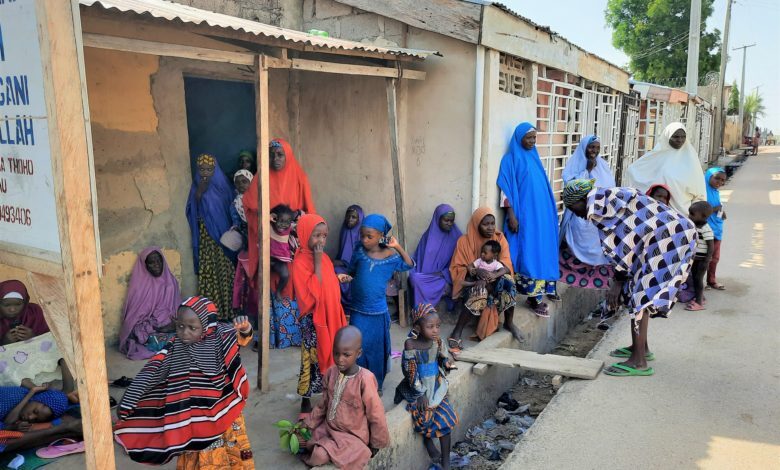Will Another Network Shutdown Save Zamfara Residents From Terror?
The government of Zamfara State, Northwest Nigeria is considering shutting down mobile communication networks for the second time. But will it have the desired effect on terrorism?

Following an increase in cases of terror attacks and kidnapping in various parts of the state, the government of Zamfara, Northwest Nigeria, is considering shutting down the state’s mobile communication network for the second time, ten months after the same measure was taken in Sept. 2021.
Residents complained that it added to their hardship and grounded economic activities in most locations. Prices of goods soared even though terrorist activities did not cease in remote locations. Residents also said that the terrorists stayed in communities longer because, without mobile network, they couldn’t make distress calls.
In some communities, abductors devised new ways to communicate with their victims’ families. They sent a message to some communities through one or a few released victims.
Recently, while responding to the kidnapping of 29 mobile phone vendors along the Sokoto-Zamfara highway by terrorists, Governor Bello Matawalle said in a statement that the state will continue to do everything possible to counter terrorist activities in the state, even if it means shutting down mobile networks for the second time.
“We have noted the rise of informants’ activities leading to many unfortunate banditry attacks on soft targets. We shall take more stringent steps in addressing the current situation, including possible communication shut down once again,” he said.
However, experts and analysts familiar with terrorist operations have criticised the move, claiming that even the previous network shutdown produced no positive results. According to them, the same mistake will be repeated a second time, thereby putting lives in distress, both economically and in terms of security.
“The whole idea of shutting down the network was bad,” said Yusuf Anka, a Zamfara-based security analyst. “At first, many people thought it would help military operations in troubled communities, but all the communities got was a longer duration of attacks by the terrorists,” he added.
Anka explained that while mobile communication allows communities to send distress calls to security personnel and vigilante forces for them to respond to an ongoing attack, places with no security presence saw an increase in the number and duration of attacks without response.
According to him, the consequences were clear when the network communication ban was lifted. “It was discovered that hundred of animals have been rustled, women and girls have been raped, and numerous people have been kidnapped or killed,” he told HumAngle.
In Zamfara State, approximately 2.1 million telecom users rely on their mobile phones for day-to-day business activities. According to Muhammad Musa, a Zamfara resident, if the network shutdown is implemented for the second time, their businesses will most likely suffer. This will affect not only residents, but also visitors to Zamfara for business, thereby putting more lives in distress, he said.
“There were few successes recorded back then. However, people have suffered so much that even the prospect of another network shutdown has sent a shocking signal to their minds,” he said.
Mallam Hamisu, an agro-businessman, communicates frequently to coordinate his business of transporting grains from Zamfara villages to Kano’s Dawanau market. When the network went down, it crippled his business.
“I couldn’t go because my business with farmers begins on WhatsApp or phone calls. I usually buy things they show me on WhatsApp and send the money through their bank accounts. None of this would have been possible without the network,” he said.
Families with relatives in different locations will also be cut off as well. Based on what happened previously, this will cause emotional distress for many people who have relatives in troubled communities. When the network was shut down last year, HumAngle spoke with a man, Mallam Rabe, in Kano whose family lives in Zamfara. He complained that not knowing his family’s security situation put him in a stressful situation.
Rabe, a trader, could not ascertain if his relatives were safe or under attack in Zamfara. “My family is there, in the village, and I have no idea what is happening to them,” he explained. “Even if they do require something from me, there will be no way for me to know their demands immediately,” he told HumAngle.
As in the past, the network shutdown will most likely put distant communities in danger. Terrorists may have a field day launching attacks and victims would be unable to call for help.
“Unless security forces are stationed there,” Anka said, “the shutdown will be an open invitation to terrorists in remote communities.”
According to the Zamfara State government, the network shutdown is intended to curtail the activities of terrorists who use informants to carry out nefarious activities. Anka, on the other hand, explained that informants came into existence only after terrorism emerged.
“Terrorists were responsible for informants’ activities. Not the other way around. Unless government work seriously in eradicating them, no elimination of informants can work without ending the terrorists,” he said.
Support Our Journalism
There are millions of ordinary people affected by conflict in Africa whose stories are missing in the mainstream media. HumAngle is determined to tell those challenging and under-reported stories, hoping that the people impacted by these conflicts will find the safety and security they deserve.
To ensure that we continue to provide public service coverage, we have a small favour to ask you. We want you to be part of our journalistic endeavour by contributing a token to us.
Your donation will further promote a robust, free, and independent media.
Donate HereStay Closer To The Stories That Matter




